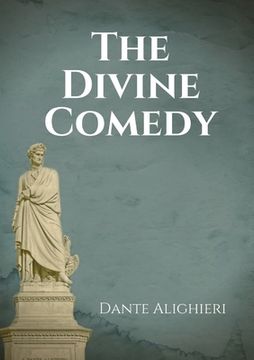
The Divine Comedy: An Italian narrative poem by Dante Alighieri, begun c. 1308 and completed in 1320, a year before his death in 1321 and (en Inglés)
Dante Alighieri (Autor) · Les Prairies Numeriques · Tapa Blanda
30,24 €
31,83 €
Ahorras: 1,59 €
Elige la lista en la que quieres agregar tu producto o crea una nueva lista
Ir a Mis Listas¿Tienes una pregunta sobre el libro? Inicia sesión para poder agregar tu propia pregunta.
